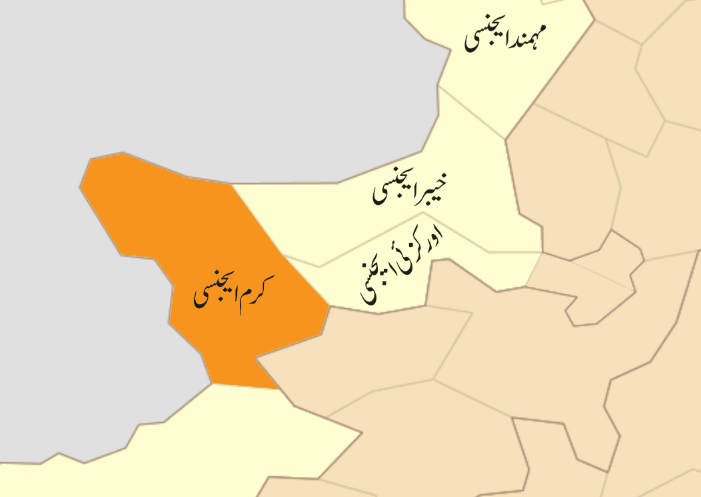The recent developments in Lower Kurram, where the state has launched decisive measures to restore peace and order, provide a significant opportunity to reflect on the importance of trust-building in conflict resolution. This trust must be forged between the state, local communities, and all stakeholders involved in the region.
As we focus on this critical aspect, it is equally vital to recognize the unwavering efforts of the Pakistan Army, which has consistently played a pivotal role in stabilizing the region and protecting its people from the scourge of violence.
The Pakistan Army has long been the backbone of national security, especially in regions like Kurram, where complexities of tribal conflicts, sectarian tensions, and cross-border violence intersect. In the current operation, the Army’s role as a stabilizing force cannot be overstated. Acting under the guidance of the civil administration, the Army’s presence has not only ensured the safety of local populations but has also served as a symbol of reassurance for communities traumatized by years of unrest.
The ongoing search operations, conducted with the utmost professionalism and precision, are a testament to the Army’s dedication to restoring law and order. By supporting the police and district administration, the Pakistan Army has reinforced its commitment to acting as a partner in peace, ready to shoulder the burden of difficult but necessary tasks. Their ability to operate in challenging terrains and under high-pressure scenarios is a reflection of their unparalleled expertise and resolve.
While the Army’s efforts are crucial in securing immediate peace, long-term stability in Lower Kurram will depend on building trust between the state and local communities. Decades of conflict have created a deep mistrust in many tribal regions, where local populations often feel disconnected from the decision-making processes that affect their lives. This mistrust is not limited to security concerns; it extends to governance, development, and resource allocation.
To address this, the government and security forces must engage communities as active participants in the peace process. Tribal elders, religious leaders, and local influencers must be involved in shaping and implementing agreements, ensuring that all voices are heard and respected. Trust is not built overnight; it requires consistent communication, transparency, and actions that reflect the state’s sincerity in addressing local grievances.
The people of Lower Kurram have endured unimaginable hardships due to years of instability. From displacement to loss of loved ones, their resilience in the face of adversity is nothing short of remarkable. Acknowledging these sacrifices is an essential step in building trust.
The state must ensure that these communities are not only safe but also empowered to rebuild their lives. As part of this empowerment, there must be clear commitments to addressing the root causes of conflict. This includes resolving land disputes, providing equitable access to resources, and ensuring that development reaches the most marginalized. By prioritizing these concerns, the state can demonstrate its commitment to a fair and inclusive peace.
While military operations are a critical component of restoring order, they must be complemented by a broader strategy that focuses on governance, development, and reconciliation. This is where the Army’s role as a peacebuilder becomes even more significant. The Pakistan Army has often gone beyond its traditional mandate, contributing to infrastructure development, education, and healthcare in conflict-affected regions.
These efforts must be expanded and institutionalized to create sustainable peace. Programs that provide education and vocational training can help integrate the youth of Kurram into the national mainstream, reducing the risk of future conflicts. Similarly, investing in healthcare and infrastructure will not only improve living conditions but also serve as visible signs of the state’s commitment to the region.
The operation in Lower Kurram is a step in the right direction, but it is only the beginning of a long journey towards peace and stability. The Pakistan Army, as a trusted institution, has a unique opportunity to act as a bridge between the state and local communities. By continuing to work alongside civilian authorities and prioritizing trust-building measures, the Army can play a transformative role in reshaping the future of Kurram.
For the state, the lesson is clear: peace cannot be imposed; it must be cultivated. This requires not only addressing immediate security concerns but also investing in the people and institutions that will sustain peace in the years to come. With the Pakistan Army standing firm as a protector and partner, and with the active participation of local communities, Lower Kurram can become a model for conflict resolution in Pakistan.
In conclusion, while the challenges in Kurram are immense, so too are the opportunities. The efforts of the Pakistan Army deserve unreserved praise for their professionalism and dedication in restoring order. At the same time, the focus must shift towards building trust and fostering long-term partnerships with local communities. Together, these elements can create a lasting legacy of peace, not only in Lower Kurram but across Pakistan.


